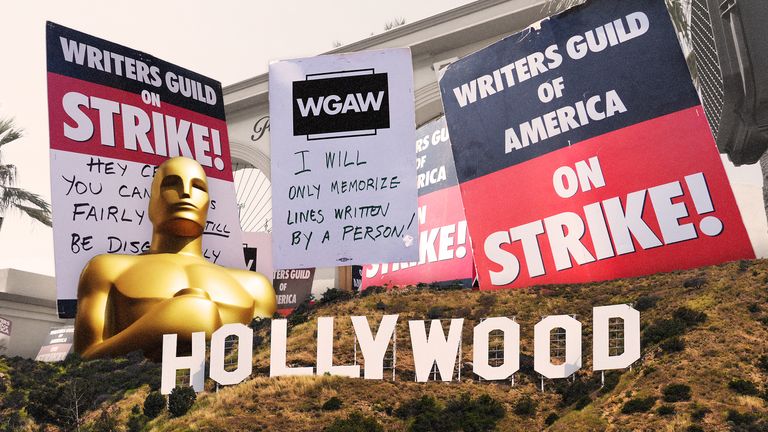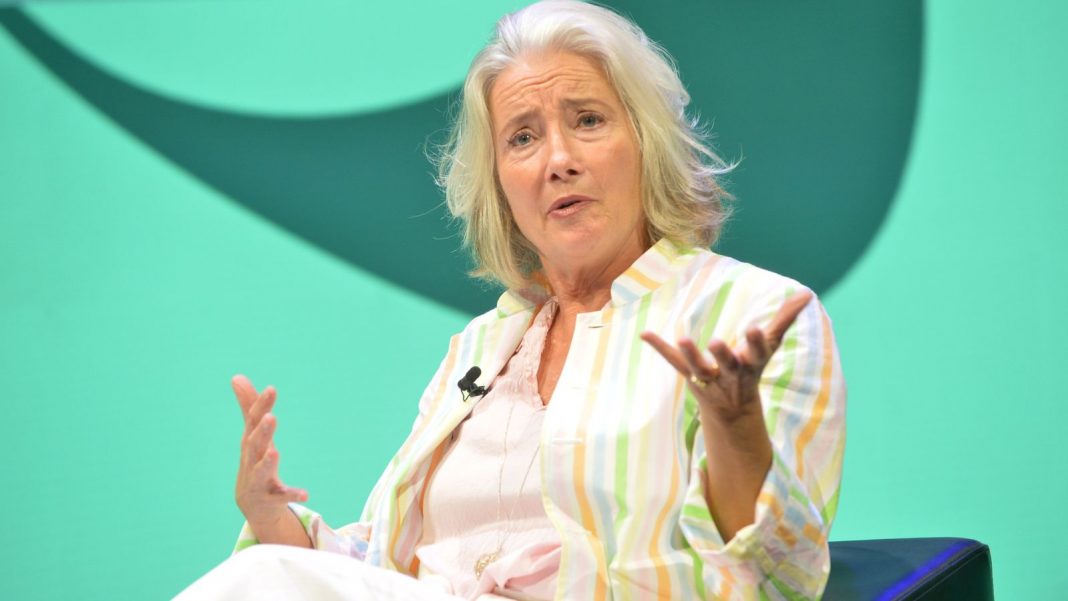Emma Thompson has said many workers are “suffering so much” as production in Hollywood remains on pause – but the problems are almost “hidden” as people feel differently about strikes in the entertainment industry compared with others.
The British actress and writer, best known for films including Sense And Sensibility, Nanny McPhee, the Harry Potter series, and Love, Actually, told an audience of TV creatives and executives the industrial action taken by writers and actors in the US “doesn’t sound the same to people” as doctors or miners striking.
Thompson was speaking in conversation with Hollywood agent Bryan Lourd, co-chairman of Creative Artists Agency – which represents stars including Margot Robbie, Tom Cruise and Madonna – who said he was “confident that we’re closer to the end than the beginning” of the strikes, with talks between writers and studios set to resume.

Earlier this month, Sky News reported how out-of-work British film and TV crew members are being forced to put their homes up for sale as a result of the knock-on effects of the strikes in the US.
Thompson said the walkouts are affecting “so many different groups of people”.
She continued: “We’re thinking it’s actors and writers, but everyone is affected… [I have] friends who are crew people, who are costume people, make-up people, who aren’t working. So it’s a very, very, very hard time. People are suffering so much.
“And actually, it’s sort of hidden as well, because there’s something about the words, ‘oh, an actors’ strike, it doesn’t sound the same to people as, ‘the doctors are on strike’, or ‘the miners are on strike’. It’s got a different feel to it, because we don’t work all the time. And I suppose that’s the point, is we’re self-employed.”
The WGA (Writers Guild of America) went on strike in May after negotiations reached an impasse over compensation, minimum staffing of writers’ rooms, and the role of artificial intelligence (AI), among other issues.
Two months later, the SAG-AFTRA actors union started its own walkout, putting Hollywood in the midst of two simultaneous strikes for the first time in 63 years.
With more than two-thirds of the UK’s total film spend coming from the US, the impact here has been severe.
Read more on Hollywood strikes:
How much of a threat is AI?
Drew Barrymore dropped as awards host for filming talk show despite strikes
More than 30,000 people have signed a petition urging the government to consider a furlough-type scheme for those who have been impacted severely because of the precarious nature of the contract work they do.
Thompson and Lourd were speaking on stage at the Royal Television Society’s Cambridge Convention, a two-day event featuring industry leaders and creatives discussing modern TV viewing.
Speaking about the strikes, Lourd said: “Once this is over, and it will be over, there’s a healing and a commitment to partnership that has to occur or else will destroy what is an amazing industry and opportunity.”
He added that there is “now an urgency around these conversations, and there wasn’t – and that’s a failure of leadership”.







